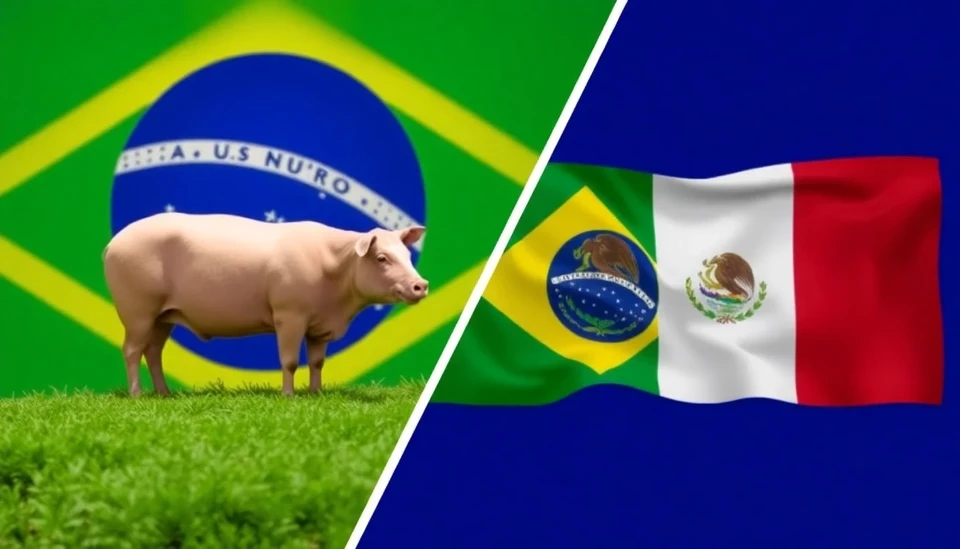
In a strategic move responding to the potential imposition of tariffs on U.S. pork exports, Brazil is eagerly seeking to expand its pork export opportunities into the Mexican market. As trade dynamics evolve and tensions heighten between the U.S. and certain trade partners, Brazil's ambition seems perfectly timed to capitalize on the shifting landscape of international pork trade.
The Mexican market has historically relied heavily on U.S. pork, making any disruptions in that supply chain an opportunity for Brazilian producers. Brazil's agriculture ministry, recognizing the potential benefits, is actively engaging with Mexican authorities to facilitate increased exports. This could lead to a significant increase in revenue for Brazilian pork producers, who are looking to fill any gaps left by the U.S. if tariffs come to fruition.
Industry insiders convey that Brazilian pork, which is already known for its competitive pricing and quality, could see greater demand in Mexico due to the changing trade environment. The Brazilian pork sector has been gearing up for this opportunity, with producers preparing their supply chains to accommodate the anticipated influx of business. This could lead to an exciting phase for Brazil's meatpacking industry, which has been expanding its focus on international markets.
Mexico remains an appealing target for Brazil, particularly as the nation is facing challenges in importing pork from the U.S. The U.S. is Brazil’s foremost competitor in this market; thus, Brazil’s strategy to enhance exports comes as both a reaction and an opportunity. Mexican importers may be inclined to seek alternatives if U.S. prices rise due to tariffs, strengthening Brazil's position as a viable supplier.
Brazilian officials highlighted that the timeline for increased exports hinges significantly on the decisions made by U.S. policymakers concerning tariffs. Should these tariffs be implemented soon, Brazilian pork could dominate the Mexican market. Prospective benefits are not just theoretical; they represent tangible gains for Brazil's agricultural sector as it seeks to solidify its position as a global leader in pork production.
As discussions continue, Brazilian producers are optimistic. Enhanced cooperation between Brazil and Mexico could yield benefits not just in terms of trade volume but also in fostering closer economic ties. This situation represents a pivotal moment for Brazilian exports, one that could reshape the dynamics of pork supply in North America.
In conclusion, the looming U.S. tariffs might trigger a renaissance for Brazilian pork exports in Mexico, showcasing not only the resilience of Brazil's agricultural industry but also its adaptability in a shifting global market. Stakeholders are keenly awaiting developments while preparing for what they hope will be beneficial trade growth.
#BrazilPorkExports #MexicoTrade #USTariffs #AgricultureNews #PorkIndustry #TradePolicy #GlobalMarketTrends #MeatExportGrowth
Author: Laura Mitchell




